January 27, 2020 - Life as a foreign entrepreneur in Croatia as so many local people are emigrating. Mirela Rus from Break Time reflects on the good, the bad, and the ugly of her first five years of doing business in Croatia.
About five years ago, at the Days of Small Boatbuilding at Le Meridien Lav in Podstrana, I met a very nice Romanian couple with a stand selling nautical jewellery which they made themselves. They explained that this was their new business, and they planned to make it work so well that it would support their new life in Croatia.
I thought they were nuts and gave them a maximum of six months before they headed back to Bucharest.
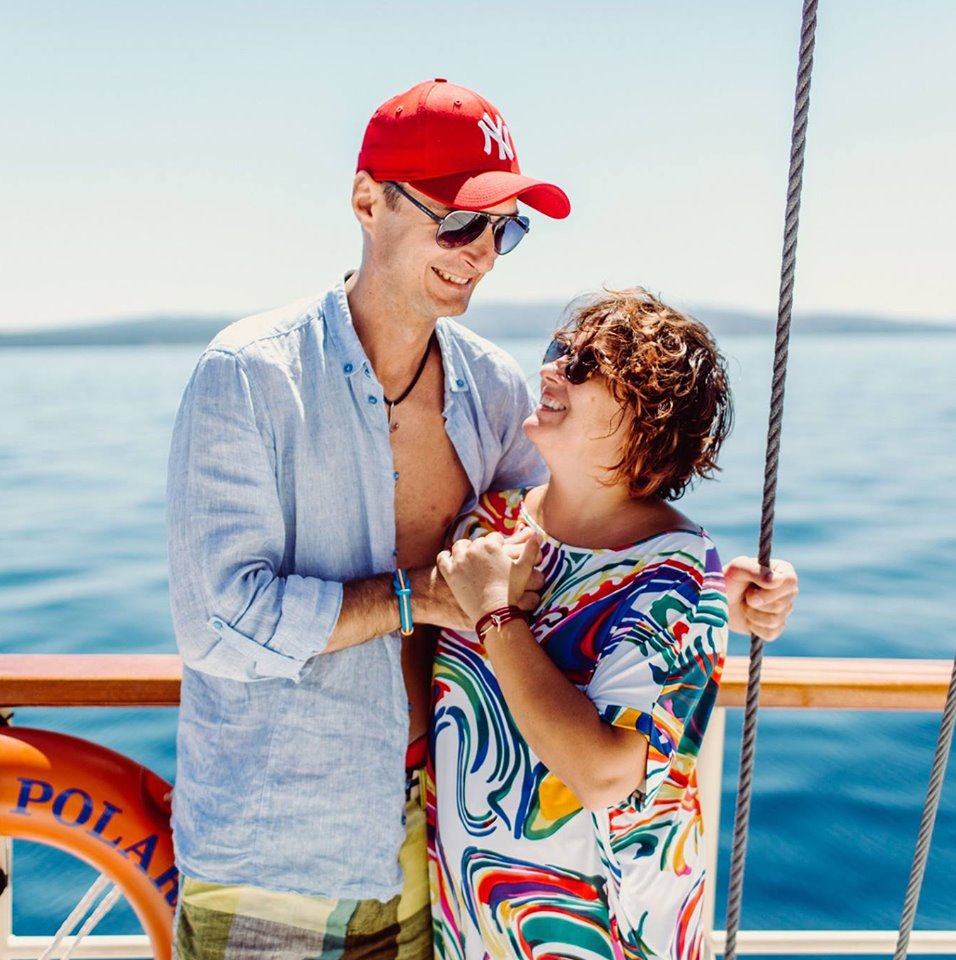
But far from struggling, Mirela Rus and partner Ionut flourished firstly online, then in Split and eventually in five cities in Croatia with their unique brand of nautical jewellery. Mirela was our first interview in our Foreign Entrepreneur in Croatia series two years later, and now she is back, a little older (though not much), a lot wiser, and with some great and honest reflections on the positive and negative experiences of five years of being a foreign entrepreneur in Croatia.
You are a foreign entrepreneur in Croatia for 5 years now, and you are still here! Tell us firstly what it is you do.
Well, in a nutshell, we are producing and selling (in our own shops) high-quality nautical-style artisan jewellery.
It is a family-run business, meaning that my partner, Ionut Copoiu, handcrafts the jewellery and I handle the marketing and sales part.
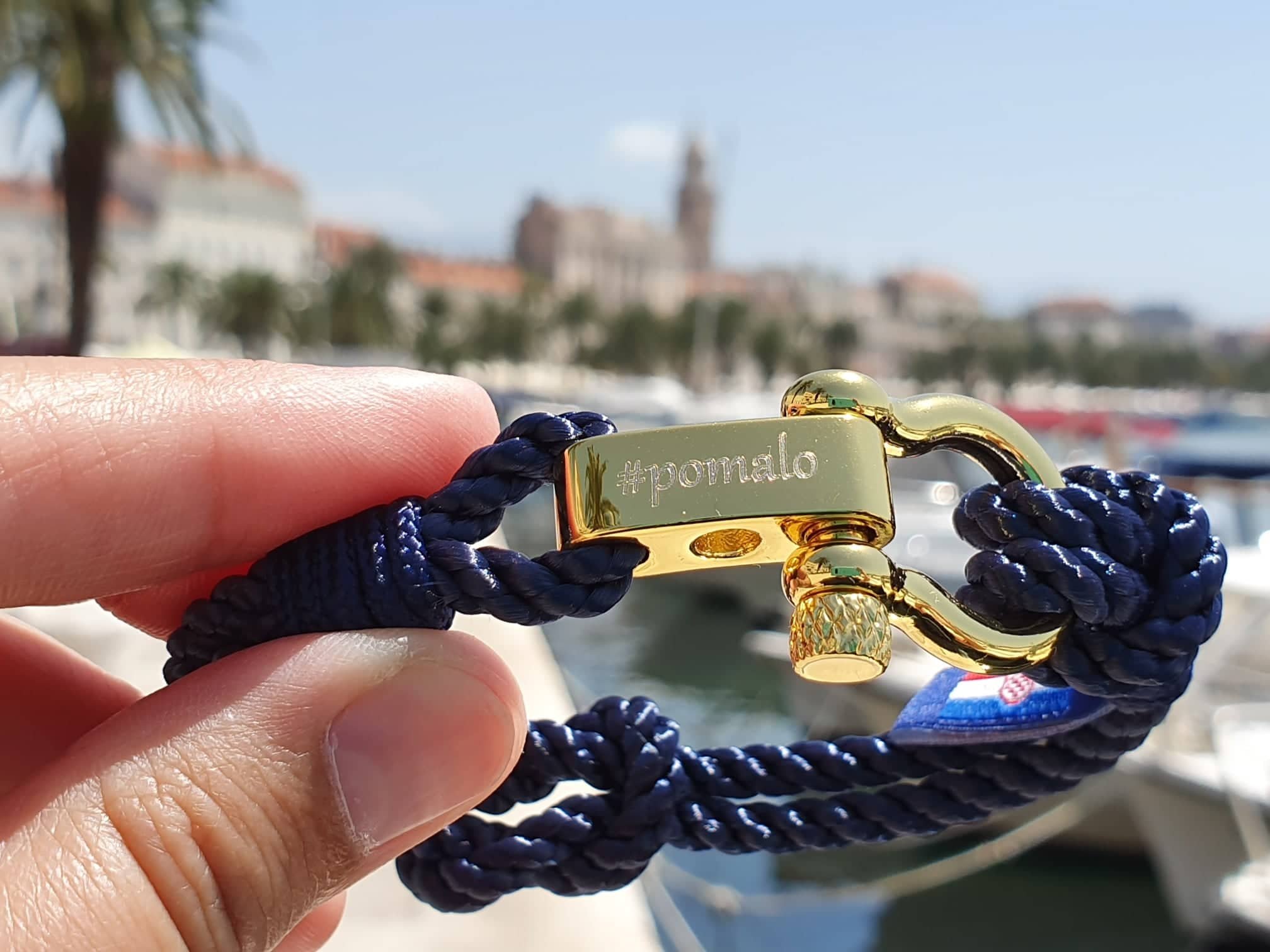
Looking back over the 5 years at the good, the bad and the ugly, let's start by asking if you are pleased at where you have ended up 5 years on?
I am pretty sure no entrepreneur is ever content with where he/she is at any given moment, since we all have a tendency to push ourselves to do more. The lesson learned in my first 40 years of life was that we should value quality of life more than business success and that was the main reason for our move here. We left Bucharest to escape stress and pollution and a generally hectic lifestyle. In that respect, I think we are pleased with our lives 5 years on. I still pinch myself every morning while looking out the window and having the sea in front of me. I know I could never ever live inland again.
How has the initial business model changed to what you have today?
We came to Croatia to build houses and we are running a handmade jewellery retail business instead. As they say, life is what happens while you’re busy making other plans
We planned our move to Croatia around the business model we had going in Bucharest, which was real estate development. Me and my partner made a great team, Ionut was building houses and apartments, I was promoting and selling them. We were actually always selling everything either off-plan or during construction, our motto was quality over quantity and it was going great.
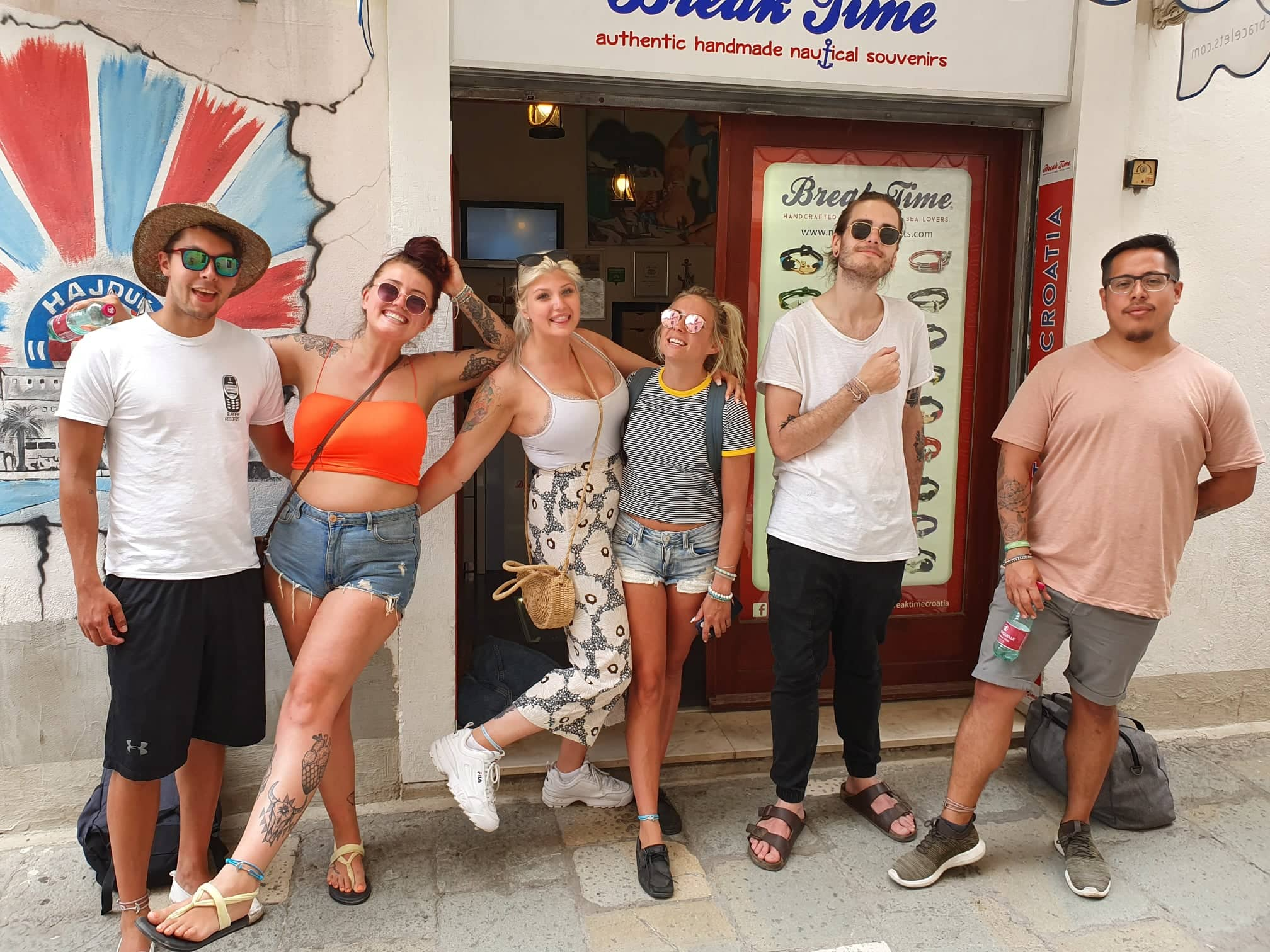
We planned our move for several years, scouting locations each summer and trying to understand how things work in our soon-to-be home country. In 2014 we created our Croatian company, we named it Break Time (we had other names higher on our list, but that was the first name accepted) and we finally decided on a land to buy and we contracted the services of a real estate agency that we thought was trustworthy, with the sole purpose of them making sure all papers are in order and help us obtain the building permits in the next 10-12 months, so that we would be able to start building the next year – since we planned to permanently move to Croatia in autumn 2015.
However, they did not disclose to us that a new law was basically halting constructions in many places around Croatia, until the UPU (Urbanistički plan uređenja) was finished – and the village where we bought the land was affected, too. We found this out in June 2015, from a local architect we contacted to help us get the building permits (since the agency we initially worked and that we also planned to hire for permits and site supervision, stopped replying to our messages). We were in disbelief and did not know what to do, since we were basically 3 months away from our move-date (by then, our Bucharest apartment was sold, our business there was almost finished, and we had no new plans for continuing it). We decided to move here anyway, and hope things would clear up soon enough.
Luckily for us, we are easily bored doing nothing, so – a month after we moved to Split – we decided to use Ionut’s hobby of making bracelets out of nautical items (which was helping him destress while running the construction business in Romania) and try to turn that into a – what we thought will be – a side-business to help us kill time and make some money while we wait for the land to be cleared for construction.
Little did we know that this will become our main business…actually the only business, since 5 years on, we still do not have the building permit (which we finally were allowed to apply for – and we did – in spring 2019).
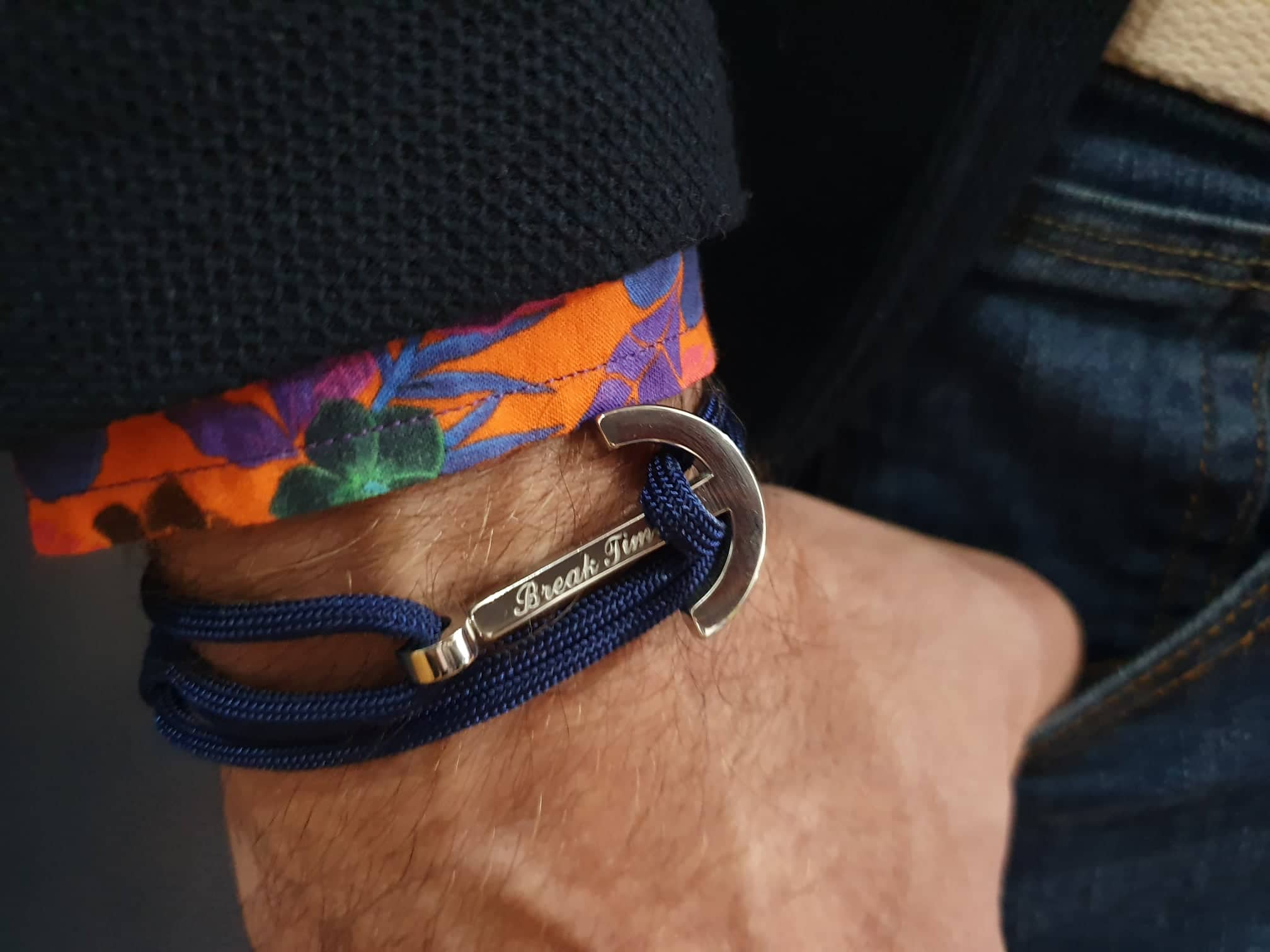
Let's start with the positives about your experience of being an entrepreneur here. Assuming there are any...
Of course, there are positives, otherwise we would not still be here. First of all, corruption is not that widespread as everyone comments it is. We come from a country where we actually had to deal with corruption absolutely each step of our way. We never had to bribe anyone in the 5 years we started our Croatian company. I put that in the plus category.
What has surprised you, in both positive and negative ways?
I will mention one that is both a positive and a negative. We appreciate Dalmatia for its laidback style, the slower pace of life that actually gives you time to enjoy it.
At the same time, that also means we had to get used to people saying they will do something or be there in X amount of time, and most of the time that never happens. One day “Dalmatian style” can mean one week (or more). I admit I am still not used to this, although I am trying to take that into account and plan accordingly each time.
You have had stores in, I think 5 cities in Croatia. Are some cities easier to do business than others?
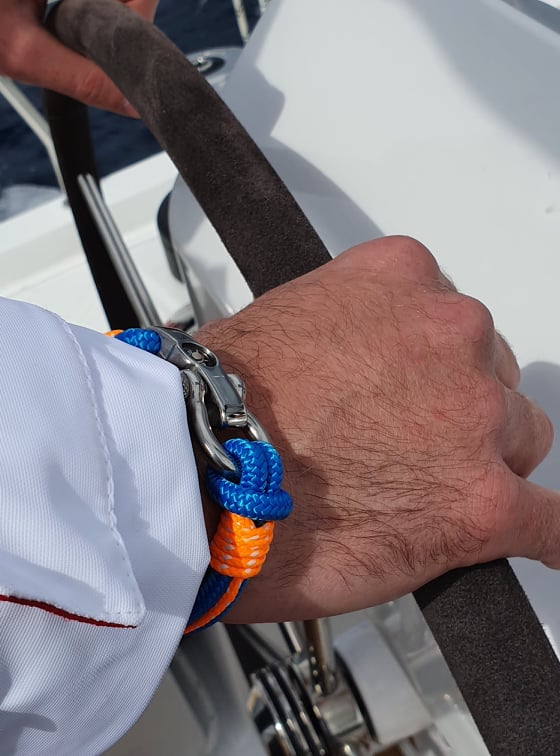
Hands down, our favourite city to do business is in Split. And our least favourite was Dubrovnik.
Despite its record tourism, you decided to close your Dubrovnik shop as business was worse and worse in the peak season. Tell us about that.
Dubrovnik was the second town we opened a Break Time shop. And the first year was great, business-wise. Then it started to go downhill, as the quality of tourists in Dubrovnik started to go downhill, too. Every business around us was losing customers. It was still a viable business, but it was not worth it for us anymore, we got tired by the everchanging local rules, lack of predictability and lack of support for local businesses. To give you just two examples: the year we opened the shop it took us two months and countless trips and phone calls to Grad just to make sure we got the specifications right for the outdoor shop signs, because it was a new design that Grad wanted. Then we had to make those signs and they were not cheap. Then next year Grad again changed the design – and we sent our shop manager to find out if we were also affected and needed to change them again. She was assured it is not the case, and only new businesses were required to have the new signs. Sure enough, in the last week of June we were told we cannot use the old signs starting 1st of July.
There was nobody available to make us new signs in less than a week. It actually took over a month. Our sales dropped in July and August (which were supposed to be our best months) because we had no outdoor signs, so people had a harder time finding us. It was exhausting and nerve-wracking.
The second example relates also to outdoor signs. Grad has, at the beginning of every street in Old Town, a textile poster signaling the names of each business on that street.
We contacted Grad in February 2016 and asked to have our name on that poster, instead of the name of a business that was in our space a few years back. They told us they refresh the names every other year and that – unlucky for us – was not the year to do it. We asked if we could change the letters ourselves (they were just sticker letters, it would have taken a couple of hundred kuna and a few minutes to do it). We were not allowed. The next year, in spring, we went back to Grad and asked again. Guess what…that was still not the year to do it. Long story short, they finally decided to update the signs in 2019. We had to pay for being there, which meant that businesses that did not pay, were not written on the poster. To me – that is weird (having also the experience of Split, where our names were added on the signs at both ends of our street in one month after we requested it, at no charge to us!). However, we paid the tax (on top of all the other taxes we were paying monthly to Grad Dubrovnik, which were also higher than in any other town we opened shops). That was March 2019. Signs were changed mid-August 2019, basically almost at the end of that summer season. Absolutely ridiculous. The day we closed the Dubrovnik shop I actually felt relieved.
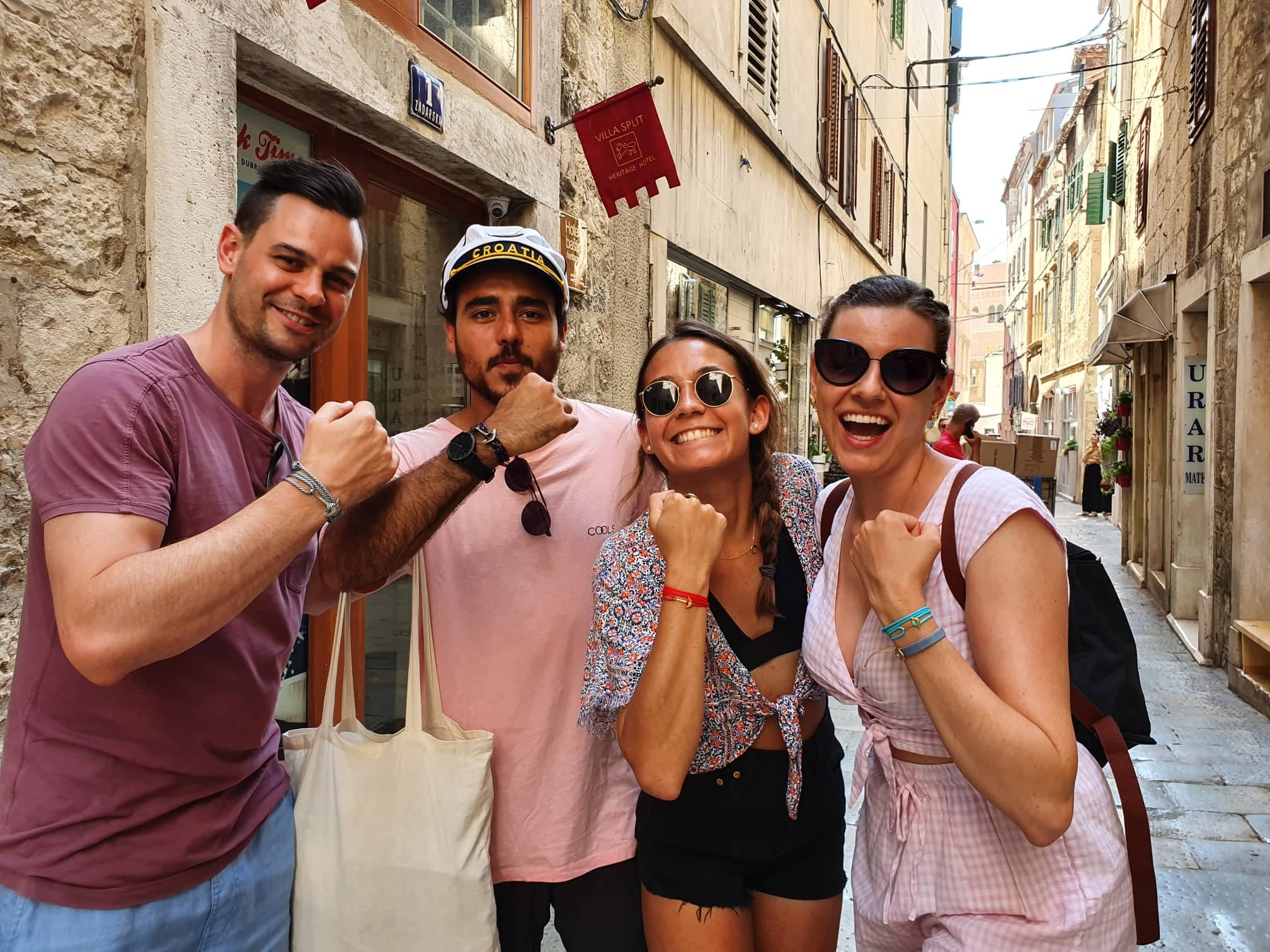
And now a look at the bad and the ugly. Coming from Romania, you are more used to bureaucracy and corruption than most. How has the Croatian business experience been for you in terms of negatives?
The main thing that I have to mention as the biggest negative are taxes. Too many and too high. VAT at 25% is a killer for small businesses. I keep wishing the Croatian Government would wisen up and lower it, in order to give oxygen to the many businesses struggling to survive here and help create a strong middle class, which should be the backbone of the economy.
The second big problem is finding good employees. Or actually finding ANY employees. With the exception of Split, where we are always finding good people and fast, all the other towns we opened shops (Dubrovnik, Porec, Rovinj, Zagreb) that was our biggest nightmare.
In Dubrovnik, for instance, we almost could not open the shop in the first year because we literally could not find anyone. True story: I hired a girl from Osijek without meeting her or even getting her CV…a friend of hers came to us and told us she has a friend in Osijek that is looking for a job in Dubrovnik…I told her I will hire her friend if she is in Dubrovnik the next day. She came! And she actually stayed with us, as shop manager (moving each summer from Osijek to Dubrovnik) until we closed the shop last year.
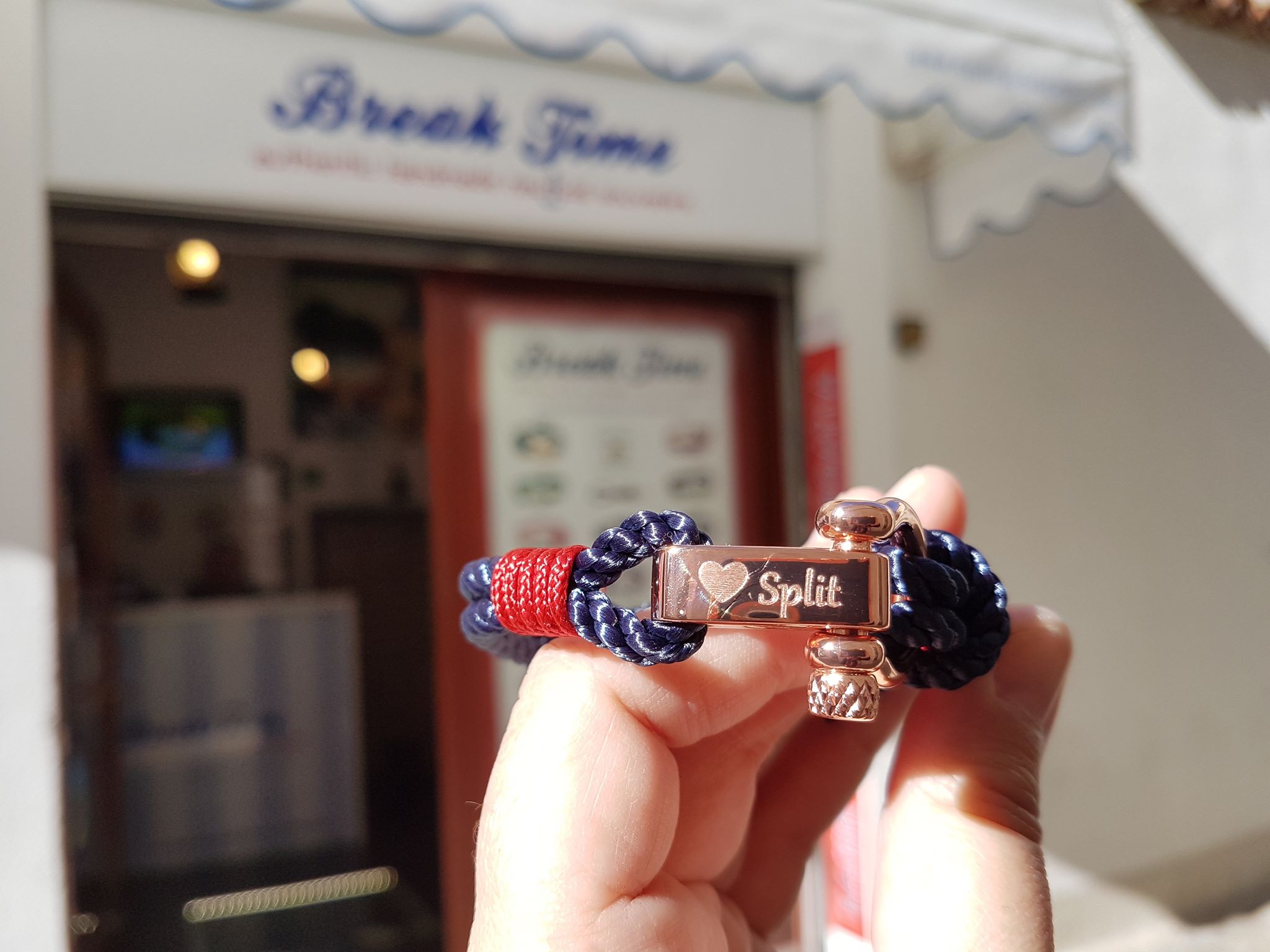
You once told me that some Romanian friends from an industrial town visited you in Split and could not believe the number of opportunities there were for business.
And it is true. All we see around us in Split is opportunity. What I think is needed first and foremost is a shift in mentality. I know things are actually hard for many, but complaining is a national sport that does not help anybody. Especially young people, who start their adult lives already thinking they cannot do anything here and they better leave abroad. The reality is that life is not easy anywhere. A can-do mentality though might make all the difference.
As a Romanian, your appreciation of the bureaucracy and corruption in Croatia is perhaps a little different. How would you compare them in the two countries?
As I mentioned earlier, on the lower day-to-day operational level, Croatia is by far better than Romania. Which is not necessarily always a good thing, paradoxically. Take for instance our building permits. Both in Romania, as well as in Croatia, we always want to stay within the law, we never want to build more than what law says, or more floors or more sqm than what we get approved etc. Both in Romania and Croatia bureaucracy is a bitch.
The law says, in most cases, that public institutions should issue documents within 30 days of the request being made. Sometimes all the clerk needed to do is put a stamp on your paper – but he still would tell you to return in 30 days. However, if you gave him some money…say 20 euros…he would stamp that right there and now. Again – not asking for any illegal documents, just ordinary documents.
In Croatia, we found that for a building permit in a village, we had to deal with three different levels of municipality/county clerks and offices. Each asking dozens of papers to be brought from the other municipality (some which could have easily be obtained online in a minute, but then they would not have the stamp on it, right?). When you bring those, they ask for more. Then they tell you to wait 30 days. Unless you are unlucky and the only clerk dealing with the problem at hand gets sick and goes to medical leave for a month. So…to be honest, we would have happily paid 20 euros to someone to have them do their job. But there was no-one to pay. They simply could not care less that you are losing time and money, and there is nothing you can do but run from one office to the other and wait…and do it all over again.
We have a huge appreciation for our local architect, Ozana Šustić, who is the one dealing with all these issues, not just for us, but for dozens of other clients, I am not sure how she is still in one piece. We have another business that occupies our time and helps us pay the bills so we can continue to live here…but for other people, getting a permit for their house to get renovated in time for the season, so they can rent it to tourists, is the difference between having what to feed their kids with or struggling to get by.
That being said, other than with the real estate-related bureaucracy, we actually had only positive experiences in dealing with authorities in Split. We still do not speak Croatian, except for basic phrases, and we still continue to go to whatever institutions we might need to on our own, without a translator. And every time without fail we encounter clerks that speak English back to us and solve our problems within minutes. I must say this continues to amaze us and I must say we really appreciate this happening to us.
And a new direction for Break Time. You have recently teamed up with Andrija Colak, the king of franchising in Croatia. Tell us about that and your new franchise direction
We are, indeed, very excited about the new direction we decided to follow. After opening six shops in total, we realized we cannot keep it up and develop the business based on this model. It was very hard to run shops basically at each end of Croatia, from Istria to Dubrovnik and to Zagreb, and do a good job at it. However, we could still see the potential for expansion, and we kept getting requests for distribution from all over the world.
We decided to keep just the two shops in Split, where we live, because they were also our best shops and it was easier to run. And to use all the experience we gathered in these five years and to focus our energy on opening our brand for franchising.
Thank you, Paul, for actually introducing us to Andrija – you are the godfather of the Break Time franchise, in a way
We have been working with Andrija since – I think – September last year, to prepare our brand for franchising. I had no idea the amount of work to be done and all the details and manuals we had to prepare, I am so grateful to Andrija for his guidance and recommendations, we truly would not have been able to do it without him. But we feel confident now that we are ready and we have a good, comprehensive, solid franchise in a niche of its own, so we are looking forward to what the future will bring. I must say though, we are targeting less (and we are less inclined to approve franchisees in) Croatia, and more international coastal destinations in countries like France, USA, UK, northern countries etc.
What advice do you have for a foreign entrepreneur looking to start a business in Croatia?
I actually always have several:
- Join local expat groups and ask for feedback, advice, recommendations. For us, that was the greatest fountain of information in a country we knew nobody and did not speak the language.
- When choosing the business you want to open, make sure you do not step on anyone’s (local) toes …it might cost you, since most places in Croatia everyone knows everyone, so you do not want to make enemies.
- Get the best commercial lawyer and accountant that you can find.
- Take every katastrofa story you hear related to the business area you want to activate in, especially from locals, with a grain of salt. And if someone says “that cannot be done”, do not take their word for it, check for yourself.
And lastly, knowing what you know now, would you do it all again? Why/why not?
Well, I have two answers for this question.
If I am thinking about the business we came here to do in the first place (real estate development and maybe tourist rental): 90% I would not do it all over again. Knowing what I know now and seeing how things get stalled, I would tell my 5-years-back-self to stay out of it.
If I am thinking about the business we ended up doing (handmade nautical jewellery), I would totally do it all over again, almost exactly as we did. Because everything we did, all the trial-and-error or trial-and-success things we did brought us where we are now and is giving us the knowledge and opportunity to be able to guide other entrepreneurs to be successful with opening their own Break Time Franchise store.
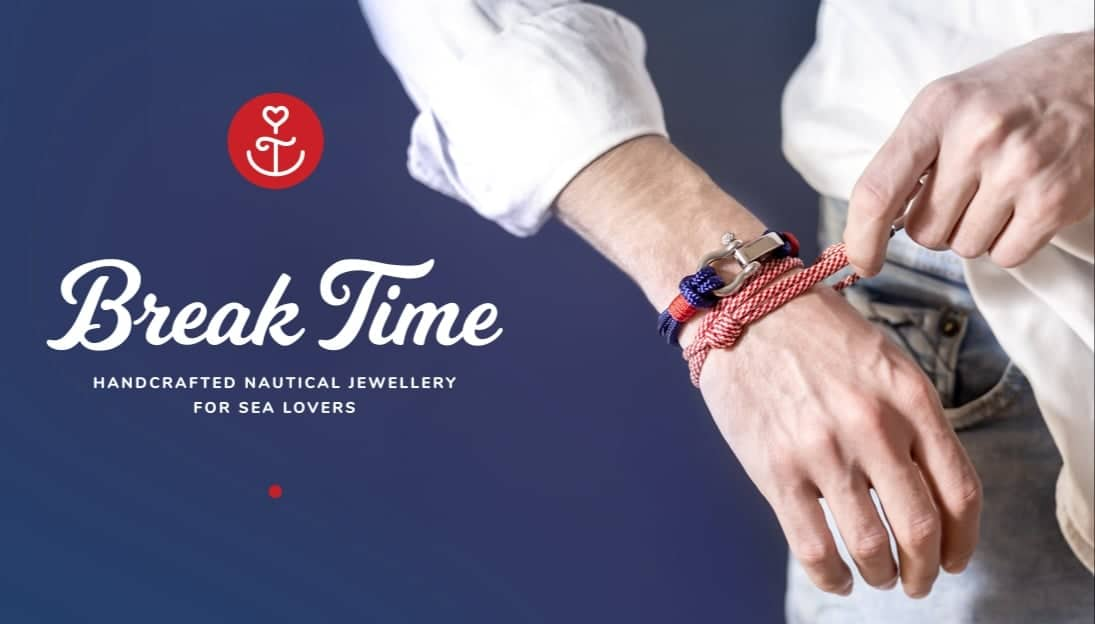
You can connect with Mirela through the official Break Time website.
Are you a foreign entrepreneur in Croatia who would like to be featured in our series? Please contact us at This email address is being protected from spambots. You need JavaScript enabled to view it. Subject Foreign entrepreneur in Croatia.


